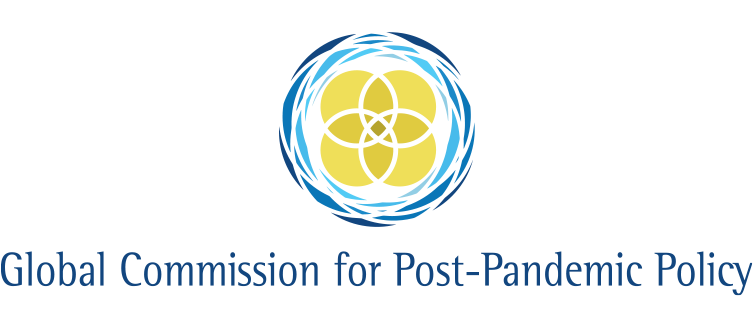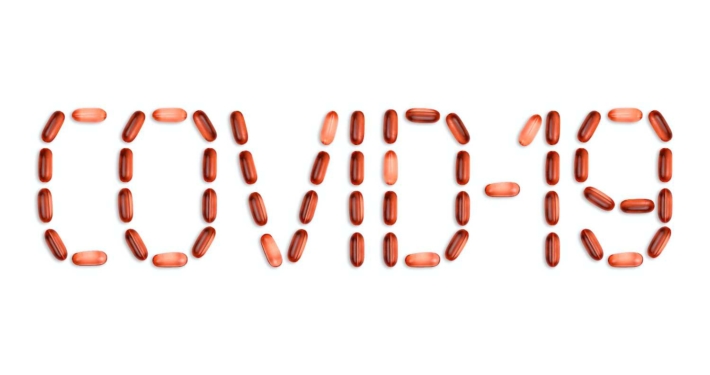The Pandemic, week to March 29th
Health
This week, newly recorded cases of COVID-19 rose sharply again worldwide in what now constitutes a third global wave of infections. The centre of this new surge is Europe, where COVID-19 cases are rising quickly across the continent. In Latin America, a worsening situation in Brazil is now spilling over into neighbouring countries—especially Uruguay. The same is true of India, where an escalating outbreak is now spreading to Pakistan, Bangladesh and Nepal. In the United States—where case numbers have been declining for weeks—infection rates climbed for the first time since early January.
In a press briefing, the World Health Organisation (WHO) attributed the new surge to the proliferation of more-infectious coronavirus variants, including those first identified in the United Kingdom and Brazil. While acknowledging that the public in many countries are eager to emerge from pandemic restrictions, the WHO representatives advised that any easing of restrictions should coincide with measures like strict COVID-19 case surveillance—like in Australia and New Zealand—or high levels of vaccination.
In Europe, the European Union introduced emergency legislation giving it broad powers to curb the export of COVID-19 vaccines manufactured in the bloc. The new rules are aimed primarily at the pharmaceutical company AstraZeneca, which continues to dramatically under-deliver on its commitments to the bloc while its supply to other nations has remained largely uninterrupted. If the powers are used, they will most significantly affect the United Kingdom—by far the biggest recipient of European vaccine exports—but also Canada, Australia and Israel.
In the United States, President Joe Biden announced his administration’s intention to ensure that over 200 million COVID-19 vaccine doses are administered within his first 100 days in office, ie by April 30th. The new figure—double the administration’s initial goal—reflects the fact that as of March 24th over 130 million jabs had already been administered, with 45 million Americans fully vaccinated.
In Hong Kong, authorities suspended use of the Pfizer-BioNTech COVID-19 vaccine after packaging defects ranging from cracked containers to loose caps were discovered in a batch of doses delivered to the Chinese territory. The doses were produced at BioNTech’s facilities in Germany, while the Chinese company Fosun Pharma was responsible for the transportation, storage and distribution of the jabs in Hong Kong.
In India, a novel strain of SARS-CoV-2 has been identified. The new strain displays a pair of mutations—called L452R and E484Q—that make it more infectious and better at evading the human immune system, respectively. In the state of Maharashtra, the variant constitutes 15-20% of samples testing positive for COVID-19, reports India’s Health Ministry. The state—which is home to India’s commercial capital Mumbai—is the region worst affected by India’s current surge in infections, accounting for over 60% of all active cases.
In Israel, the celebration of Passover was this year also a celebration of freedom from the coronavirus. More than half of Israel’s population of 9.3 million—4.7 million people—have now received both doses of a COVID-19 vaccine. The week-long springtime festival offered the chance for extended families to get together safely for the first time since the beginning of the pandemic.
Economy
In the United Nations, Secretary-General Antonio Guterres expressed concern about the possibility of an emerging-market debt crisis. The fact that only six countries defaulted on foreign-owned debt last year—namely Argentina, Belize, Ecuador, Lebanon, Suriname and Zambia—has created an illusion of stability, says Guterres. The Secretary-General expressed particular concern about large middle-income nations like South Africa and Brazil that have borrowed heavily from domestic lenders at much higher interest rates than those available to wealthier nations.
In the United States, President Joe Biden is scheduled to travel to Pittsburgh, Pennsylvania on March 31st to formally unveil the next phase of his economic agenda: a sweeping infrastructure plan. The package—which will cost upwards of $3 trillion over ten years—will invest in the climate transition, education and support for working mothers. To fund the package, the Biden administration will propose an overhaul of the United States tax code. The overhaul will target the wealthy, likely raising corporate tax rates and taxes on capital gains.
The Department of Labour released its weekly jobless claims data. Last week, new jobless claims dropped to 684,000—their lowest level of the pandemic. The figure for the previous week was 781,000, revised up from the initially announced 770,000. The change suggests that the economic recovery is picking up speed after the passage of the American Rescue Plan stimulus package and the rapid vaccination roll-out.
In South Africa, the governor of the South African Reserve Bank (SARB) Lesetja Kganyago announced no change to the reserve bank’s interest rates this quarter. The announcement bucked a pan-African trend of interest rate hikes in response to the strengthening of the US dollar. The current benchmark interest rate is set at 3.5%—its lowest figure since its introduction in 1998. In addition, Kganyago announced that the reserve bank will raise its 2021 growth forecast for the African economy from 3.6% to 3.8%, reflecting improved prospects for the global economy rather than any particular change in South Africa.
In Nigeria, the Nigerian National Bureau of Statistics (NBS) published its employment data for the fourth quarter of 2020. In the three months from October through December, the unemployment rate rose to 33.3%. That is the second highest jobless rate in the world, trailing only Namibia. The Nigerian economy has struggled in recent years, with two major recessions in only five years. In that time, unemployment has quadrupled.
Politics
The World Health Organisation’s fact-finding mission to China on the origins of the COVID-19 pandemic is due to release its findings soon. In a draft copy obtained by the Associated Press, the mission’s researchers report that the transmission of the virus from bats to humans through a second animal reservoir species is the most likely scenario for the emergence of the virus, and give reasons why they believe that a lab-leak source “is extremely unlikely.” However Tedros Adhanom Ghebreyesus, the WHO director-general, stressed that “all hypotheses remain on the table” and that investigations must continue.
In the United States, members of far-right online communities—including adherents of QAnon—are turning their attention from election-fraud conspiracies to undermining the government’s vaccination campaign. There is an emerging obsession with the government’s Vaccine Adverse Event Reporting System (VAERS), a site designed for use by doctors and public health officials. The site allows access to unfiltered data on adverse reactions to COVID-19 vaccines, which far-right activists are using to fuel distrust in the safety and efficacy of the jabs.
In the state of New York, Governor Andrew Cuomo is embroiled in yet another political scandal. It has become clear that the Governor ensured preferential access to COVID-19 testing for George Yancopoulos—a pharmaceutical executive—at a time when tests were severely limited in the state. The unusual treatment was also extended to members of the Cuomo family and other influential figures. The Governor is already being investigated by the New York State assembly over allegations of sexual harassment and the manipulation of data related to nursing-home deaths.
In the United Kingdom, a judicial review of key government appointments is to be heard in the British high court. In the case, Prime Minister Boris Johnson and Secretary of State for Health and Social Care Matt Hancock stand accused of cronyism in three crucial appointments made last year in response to the COVID-19 crisis, including Dido Harding as head and director of testing at NHS Test and Trace and Kate Bingham as head of the governments’ vaccine task force. Both Harding and Bingham are married to Conservative members of parliament, one of whom was a contemporary of Boris Johnson’s at Eton.
In Brazil, prominent members of the nation’s business elite signed onto a widely published letter upbraiding the Bolsonaro administration for its handling of the COVID-19 pandemic. The letter accuses the country’s highest political leadership of ignoring the advice of scientists, hyping unproven COVID-19 treatments and “flirting with the anti-vaccine movement.” The letter—which was largely ignored by President Jair Bolsonaro—underscores the extent to which the same business leaders who backed his rise to power are now distancing themselves from him.
GCPPP Newsletter
We now publish a weekly newsletter to inform friends and supporters of the Global Commission’s progress and to provide updates when new content is published. Please sign up here:


 Volodymyr Hryshchenko, Unsplash
Volodymyr Hryshchenko, Unsplash
 Adam Nieścioruk, Unsplash
Adam Nieścioruk, Unsplash
 visuals, Unsplash
visuals, Unsplash


